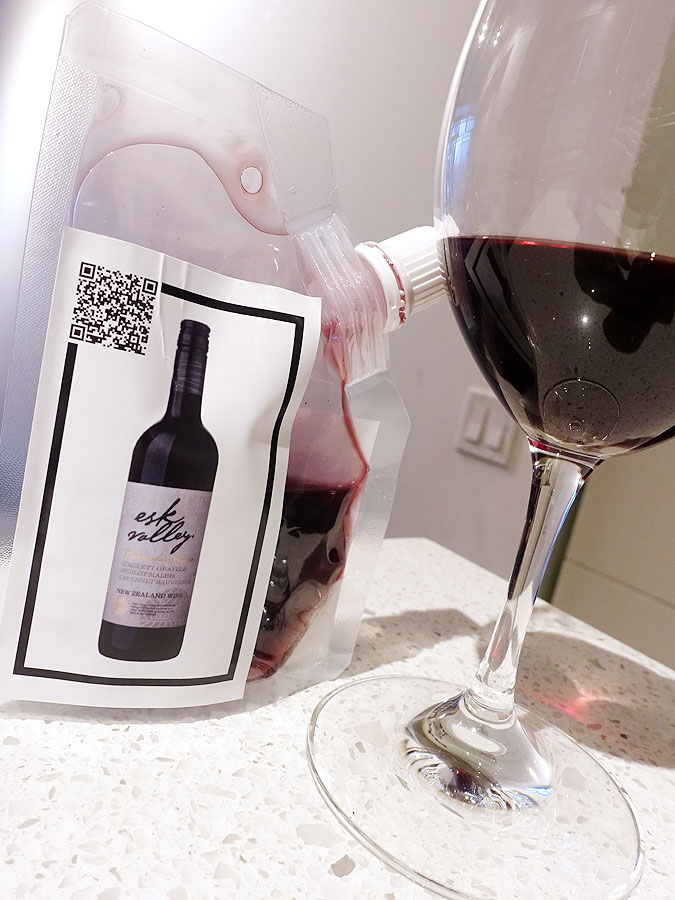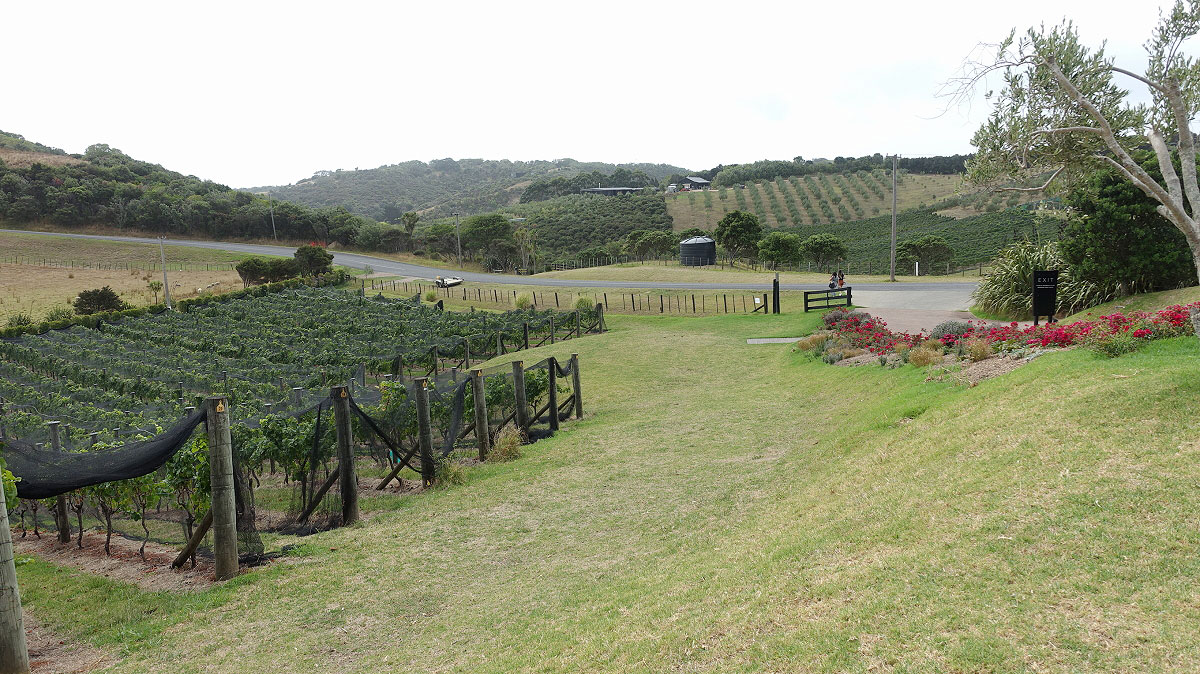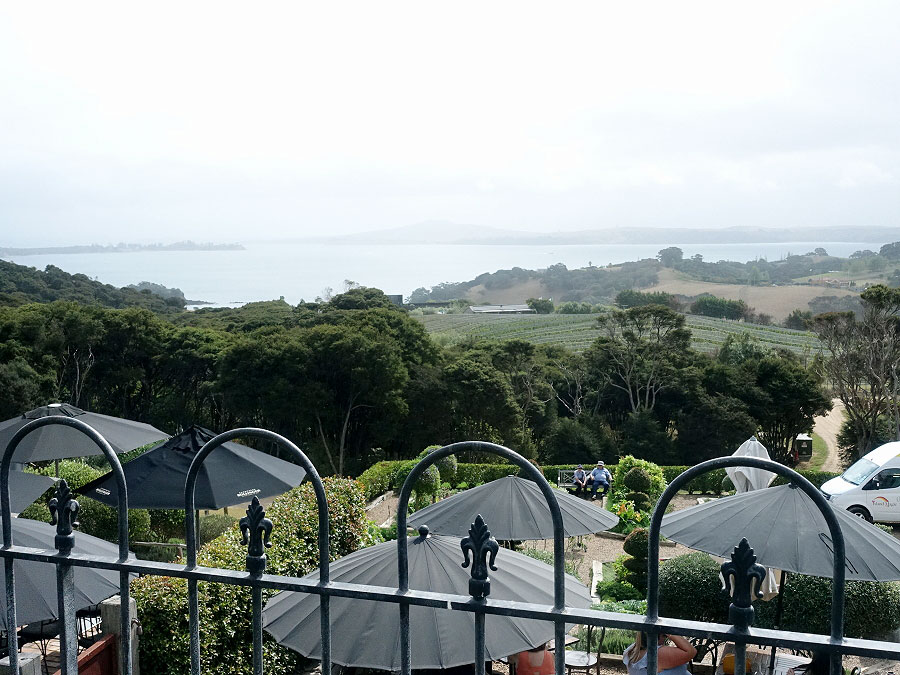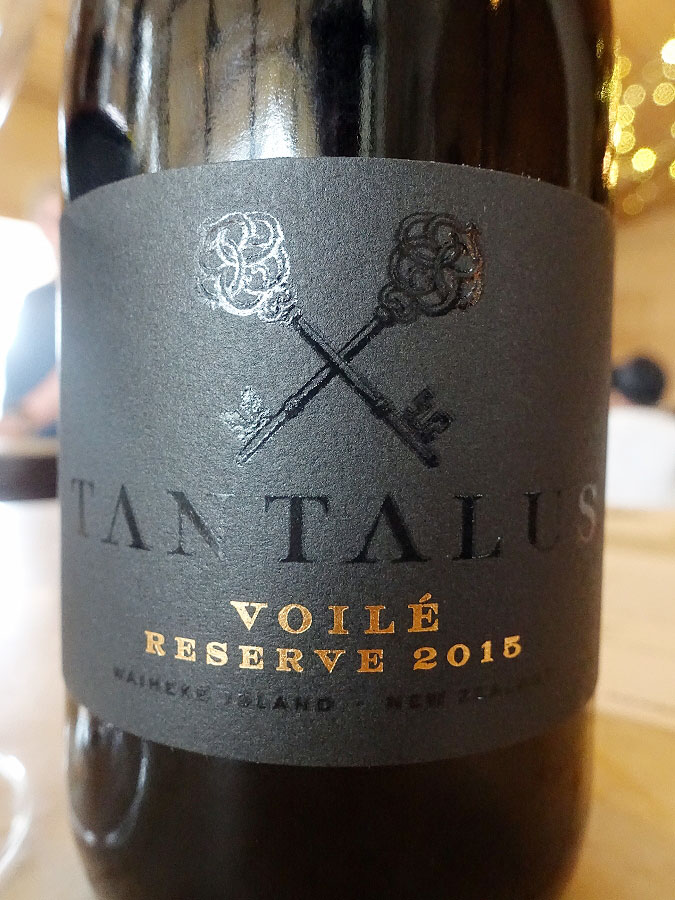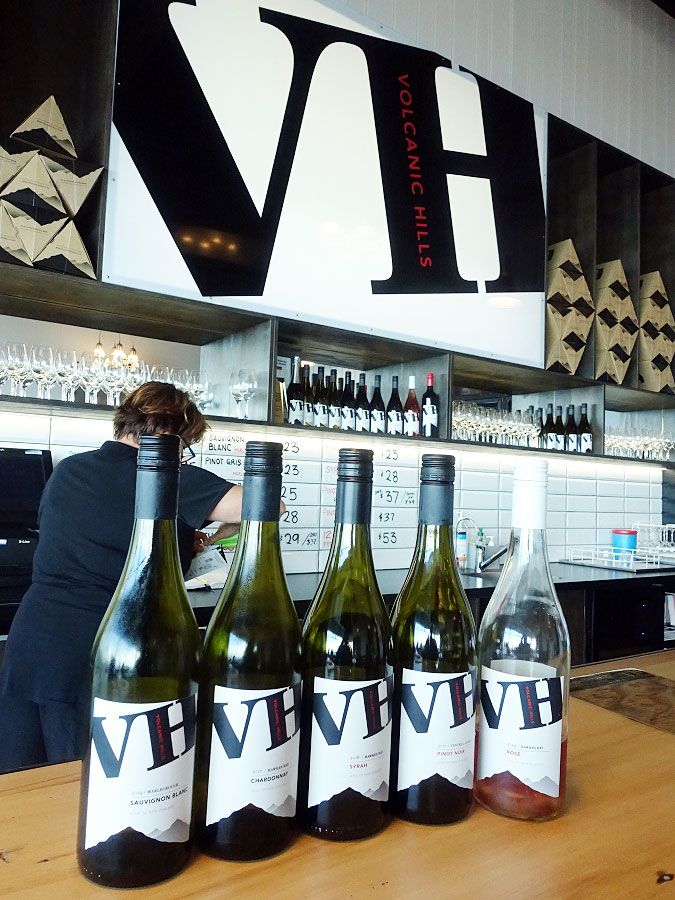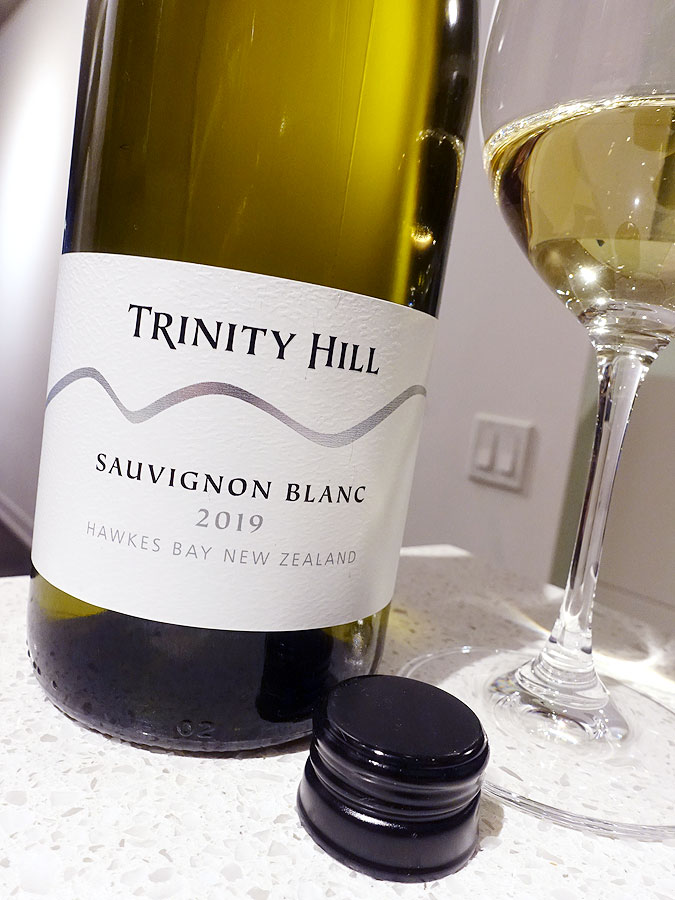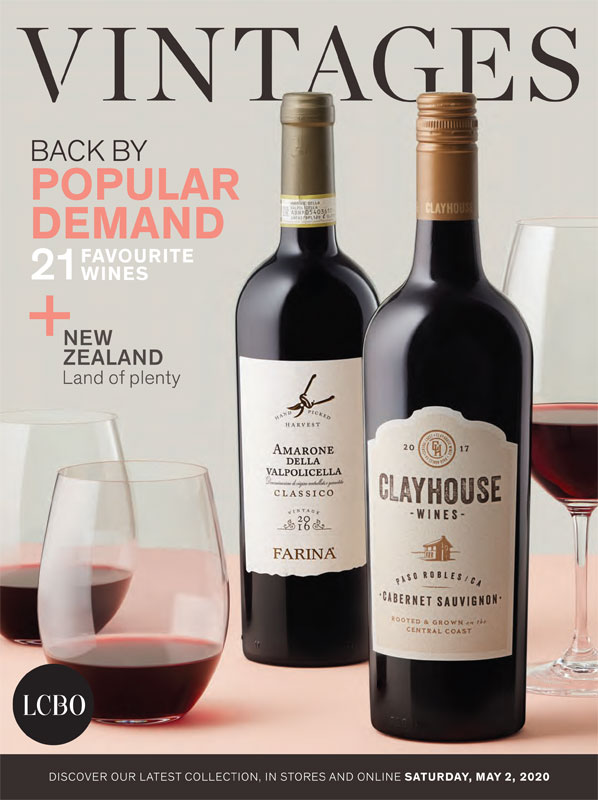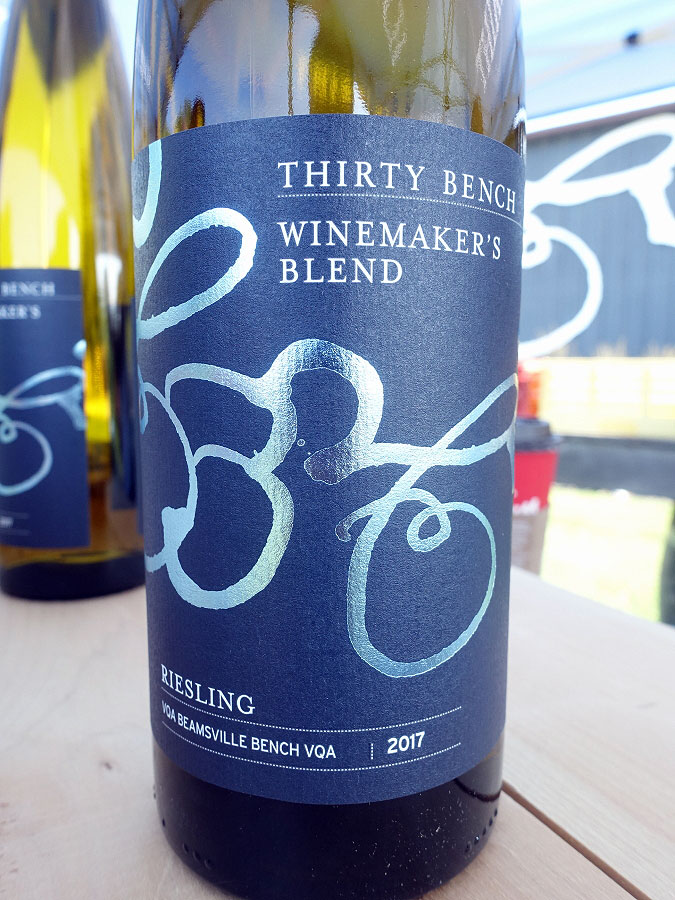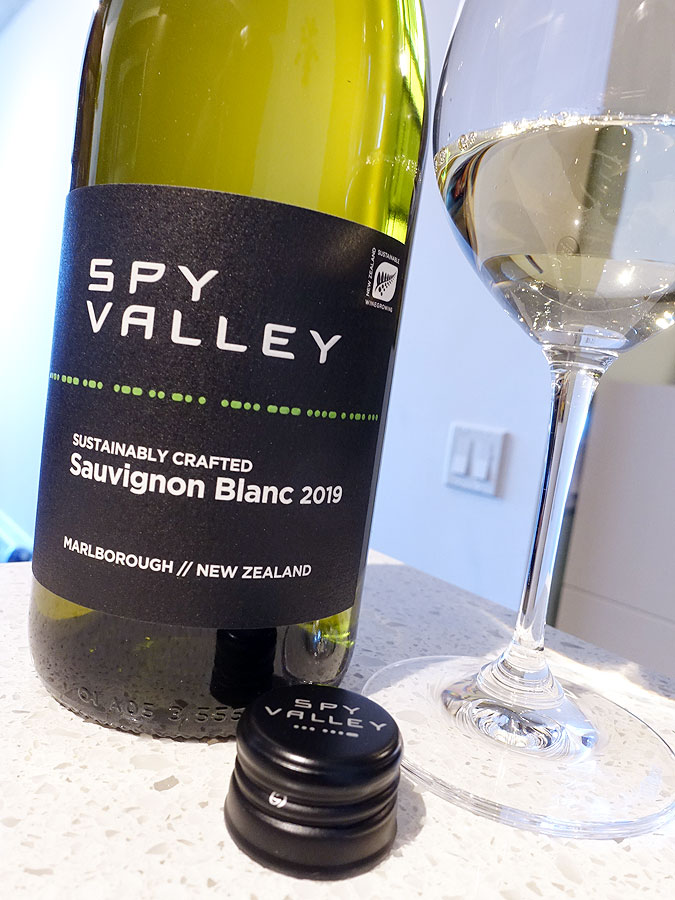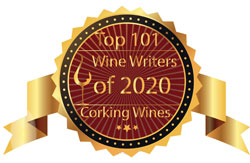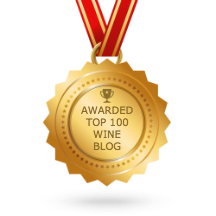During the week of February 8 - 12, 2021, I attended the first ever New Zealand Wine Week. There were many activities planned throughout the week across Canada, USA, UK, and Ireland, including tastings, discussions, and online activities.
I managed to attend a couple of fascinating classes - one titled "Pinot Noir Soils" and another on Syrah. To assist with the learning, I also received a specially-curated Sustainable Wine Tasting Kit that contained three lovely wines which are reviewed below. To reduce environmental impact, the wines were packaged in low-waste, recyclable tetra-paks. Given the current pandemic, I can't help but wonder if more wine tasting kits will be provided in this manner in the future.
New Zealand produces 1% of the world's wine and 17% of the world's Sauvignon Blanc. While most of New Zealand's wine production is devoted to Sauvignon Blanc, ranking second is Pinot Noir with 7% of the country's wine production. New Zealand's soils are approximately 42 million years old, relatively new by comparison to other wine regions, and most of it has been moved by water. As such, there can be expected a variety of soil types which are layered. Pinot Noir prefers free-draining soils such as those found in Wairarapa, North Island. In Marlborough, as I learned during my visit to New Zealand last year, the Southern Valleys of the Wairau Valley have predominately clay soils - a prime area for growing fuller-bodied Pinot. As vines with age go deeper and deeper into soil in the search for water and nutrients, the different layers of soils reveal themselves and develop additional character in the wines. In Pinot Noir, clay gives density to wines, gravelly soils build tannins, and limestone gives vibrancy and length to wines. In a short period, New Zealand has built a reputation for producing quality Pinot Noir, with Central Otago leading much of this notoriety, although interesting Pinot Noir is produced throughout all of New Zealand's wine regions.
Syrah is the oft-forgotten variety of New Zealand. It represents just 1% of all vines in New Zealand and ranks 7th by acreage. Although it is speculated that Syrah was first planted in New Zealand in the 1830s. it is known that the first Australian cuttings were brought to New Zealand in 1900. The oldest modern Syrah vines were planted in 1984. Of the 437 hectares of Syrah planted in New Zealand in today, 339 hectares are planted in the warmer North Island region of Hawke's Bay - a region I had the pleasure of visiting last year because I discovered NZ Syrah several years prior. I also visited Waiheke Island last year and it has the second-most Syrah in the country with 51 hectares planted to the varietal.
A lovely Albariño from the Awatere Valley in Marlborough was also part of this tasting kit and reviewed below. Originally from Spain, Albariño has found a home in New Zealand. I discovered New Zealand Albariño after tasting a few wines during my visit to NZ last year. Only 27 hectares of Albariño are planted within the country, with most of the plantings concentrated in Gisborne, Marlborough, and Hawke's Bay.
The most recent vintage was also among the many topics discussed. While the 2020 vintage will always be remembered as the COVID-19 harvest, it was actually an excellent summer throughout most of New Zealand and the 2020 vintage is expected to be outstanding.
Sustainability was also a major theme of the week. New Zealand was the first wine industry to establish a national sustainability programme - Sustainable Winegrowing New Zealand (SWNZ) - which first started 1994. Today, 96% of New Zealand's vineyard producing area is certified by the programme. With a strong commitment from winemakers and grape growers, New Zealand is able to craft exceptional wines while also helping the natural environment, local businesses, and communities thrive. The six areas of focuses with sustainability efforts are water, waste, pest and disease, soil, climate change, and people.
Mostly fermented in stainless steel tanks, with 10% fermented in French oak barriques, as well as 3 months ageing on the lees. Fresh aromatics deliver an intriguing mix of ripe citrus, stone fruits, and floral with touches of vanilla, yeasty, and seashell notes. On the medium+ bodied palate it has a slightly creamy mouthfeel that’s balanced by fresh, zesty acidity. It has ripe, honeyed flavours of citrus and stone fruits on the flavour profile, while yeasty, seashell mineral, and touches of vanilla linger on the juicy finish, with very good length. Agent: Nicholas Pearce Wines. Score: 90 pts
CHURTON NATURAL STATE PINOT NOIR 2019 - Waihopai Valley, Marlborough, South Island, New Zealand (XD) - $31.95
Grown according to biodynamic and organic principles from the Southern Valley of Waihopai, this single block Pinot Noir was naturally fermented with indigenous yeast and has medium-high intensity aromas are very ripe with black cherry, raspberry, blackberry, and floral notes with touches of bramble. It is medium-bodied and mildly structured on the palate with nice, fruity aroma replays plus some earthy and tea leaf flavours. It has balanced, juicy acids and elegantly textured tannins. Very good length on the finish with notes of savoury black cherry. Vegan-friendly. Agent: Le Sommelier. Score: 90 pts
ESK VALLEY WINEMAKERS RESERVE SYRAH 2014 - Gimblett Gravels, Hawke's Bay, North Island, New Zealand (XD) ~$60
From the Cornerstone Vineyard, the medium+ intensity nose seems a bit closed, but offers notes of black plum, dark berry, blackberry, and some wood spice aromas. The structured, medium-full bodied is lovely with blackberry, black pepper, earth, eucalypt, and wood spice flavours that are supported by juicy acidity and well-integrated tannins. The savoury, earthy, black pepper spice, and dark chocolate notes continue through to the long, satisfying finish. Still has many years of enjoyment ahead. Agent: Perigon Beverage Group. Score: 92 pts
I managed to attend a couple of fascinating classes - one titled "Pinot Noir Soils" and another on Syrah. To assist with the learning, I also received a specially-curated Sustainable Wine Tasting Kit that contained three lovely wines which are reviewed below. To reduce environmental impact, the wines were packaged in low-waste, recyclable tetra-paks. Given the current pandemic, I can't help but wonder if more wine tasting kits will be provided in this manner in the future.
New Zealand produces 1% of the world's wine and 17% of the world's Sauvignon Blanc. While most of New Zealand's wine production is devoted to Sauvignon Blanc, ranking second is Pinot Noir with 7% of the country's wine production. New Zealand's soils are approximately 42 million years old, relatively new by comparison to other wine regions, and most of it has been moved by water. As such, there can be expected a variety of soil types which are layered. Pinot Noir prefers free-draining soils such as those found in Wairarapa, North Island. In Marlborough, as I learned during my visit to New Zealand last year, the Southern Valleys of the Wairau Valley have predominately clay soils - a prime area for growing fuller-bodied Pinot. As vines with age go deeper and deeper into soil in the search for water and nutrients, the different layers of soils reveal themselves and develop additional character in the wines. In Pinot Noir, clay gives density to wines, gravelly soils build tannins, and limestone gives vibrancy and length to wines. In a short period, New Zealand has built a reputation for producing quality Pinot Noir, with Central Otago leading much of this notoriety, although interesting Pinot Noir is produced throughout all of New Zealand's wine regions.
Syrah is the oft-forgotten variety of New Zealand. It represents just 1% of all vines in New Zealand and ranks 7th by acreage. Although it is speculated that Syrah was first planted in New Zealand in the 1830s. it is known that the first Australian cuttings were brought to New Zealand in 1900. The oldest modern Syrah vines were planted in 1984. Of the 437 hectares of Syrah planted in New Zealand in today, 339 hectares are planted in the warmer North Island region of Hawke's Bay - a region I had the pleasure of visiting last year because I discovered NZ Syrah several years prior. I also visited Waiheke Island last year and it has the second-most Syrah in the country with 51 hectares planted to the varietal.
A lovely Albariño from the Awatere Valley in Marlborough was also part of this tasting kit and reviewed below. Originally from Spain, Albariño has found a home in New Zealand. I discovered New Zealand Albariño after tasting a few wines during my visit to NZ last year. Only 27 hectares of Albariño are planted within the country, with most of the plantings concentrated in Gisborne, Marlborough, and Hawke's Bay.
The most recent vintage was also among the many topics discussed. While the 2020 vintage will always be remembered as the COVID-19 harvest, it was actually an excellent summer throughout most of New Zealand and the 2020 vintage is expected to be outstanding.
Sustainability was also a major theme of the week. New Zealand was the first wine industry to establish a national sustainability programme - Sustainable Winegrowing New Zealand (SWNZ) - which first started 1994. Today, 96% of New Zealand's vineyard producing area is certified by the programme. With a strong commitment from winemakers and grape growers, New Zealand is able to craft exceptional wines while also helping the natural environment, local businesses, and communities thrive. The six areas of focuses with sustainability efforts are water, waste, pest and disease, soil, climate change, and people.
Tasting Notes:
THE HUNTING LODGE SEASONAL ALBARINO 2019 - Awatere Valley, Marlborough, South Island, New Zealand (XD) - $19.95Mostly fermented in stainless steel tanks, with 10% fermented in French oak barriques, as well as 3 months ageing on the lees. Fresh aromatics deliver an intriguing mix of ripe citrus, stone fruits, and floral with touches of vanilla, yeasty, and seashell notes. On the medium+ bodied palate it has a slightly creamy mouthfeel that’s balanced by fresh, zesty acidity. It has ripe, honeyed flavours of citrus and stone fruits on the flavour profile, while yeasty, seashell mineral, and touches of vanilla linger on the juicy finish, with very good length. Agent: Nicholas Pearce Wines. Score: 90 pts
CHURTON NATURAL STATE PINOT NOIR 2019 - Waihopai Valley, Marlborough, South Island, New Zealand (XD) - $31.95
Grown according to biodynamic and organic principles from the Southern Valley of Waihopai, this single block Pinot Noir was naturally fermented with indigenous yeast and has medium-high intensity aromas are very ripe with black cherry, raspberry, blackberry, and floral notes with touches of bramble. It is medium-bodied and mildly structured on the palate with nice, fruity aroma replays plus some earthy and tea leaf flavours. It has balanced, juicy acids and elegantly textured tannins. Very good length on the finish with notes of savoury black cherry. Vegan-friendly. Agent: Le Sommelier. Score: 90 pts
ESK VALLEY WINEMAKERS RESERVE SYRAH 2014 - Gimblett Gravels, Hawke's Bay, North Island, New Zealand (XD) ~$60
From the Cornerstone Vineyard, the medium+ intensity nose seems a bit closed, but offers notes of black plum, dark berry, blackberry, and some wood spice aromas. The structured, medium-full bodied is lovely with blackberry, black pepper, earth, eucalypt, and wood spice flavours that are supported by juicy acidity and well-integrated tannins. The savoury, earthy, black pepper spice, and dark chocolate notes continue through to the long, satisfying finish. Still has many years of enjoyment ahead. Agent: Perigon Beverage Group. Score: 92 pts



